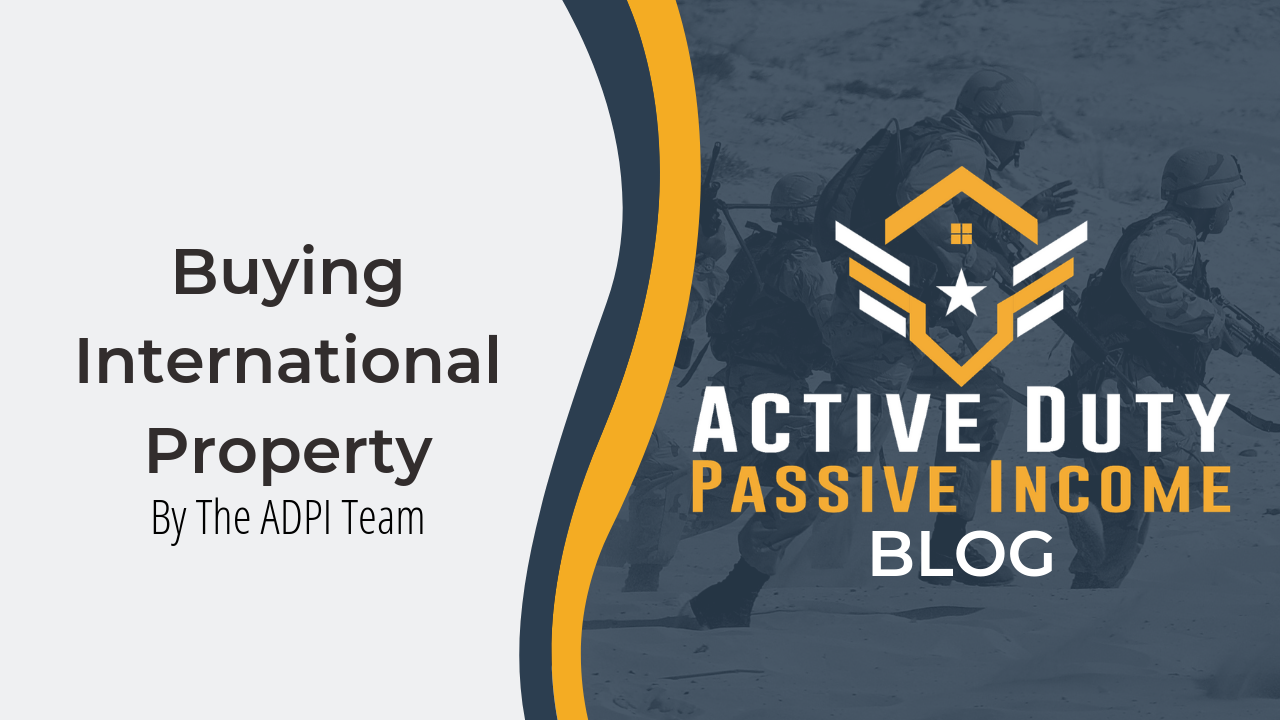Buying International Properties
International Property: You’s probably been there before: Lying on a beach daydreaming about what it would be like if you stayed and never went home. Maybe during your last overseas duty station you’ve walked through an old Italian village wishing you could live forever surrounded by olive groves under the Tuscan sun or you’ve stopped at the local brewery, dressed in your Oktoberfest finest, and dreamt of simply buying the apartment next door and making this your forever spot. Or, instead of living there yourself, you’ve contemplated dipping your toes into the international real estate market to diversify your investment portfolio. How different can real estate be in another country right?

No matter the reason, if your dream is to one day own an overseas beach house or Tuscan villa (or any other international property), these five considerations will help you come to the international market prepared.
-
Explore the Country
Not all locations are created equal. Buying overseas just for the sake of it isn’t a good idea. Take time to explore a place and get to know the areas before investing in its property. If you’re interested in a specific country or city, we recommend taking several trips to scope out various areas. If by the end of your exploration you don’t want to go back, don’t invest there. It’s also recommended to rent a house, apartment or short term rental during your visits instead of staying in a resort. Essentially stay in a property type as close to the one you are considering purchasing to get a real sense of what you’ll be getting in to. This will give you a more realistic view of what it’s like to live as a local instead of a tourist.
-
Learn the Country’s Real Estate Laws
As a foreigner, there are likely tax and legal implications that come with owning property abroad. Before setting your sights on a specific spot, educate yourself on the country’s real estate laws for foreign ownership. For example, Mexico bans foreign property ownership within a certain amount of miles of the coastline and country borders. For a price, however, there is a way around this restriction through a fideicomiso, which is a trust agreement that allows a foreign buyer to hold property with all the rights of a Mexican citizen. This is just one example. Bottom line: Learn what you’re getting into before you get into it.
Reading about tax laws is another important aspect to research. In addition to the American taxes you’ll have to pay on foreign property holdings, most foreign countries levy taxes on income and capital gains earned within their borders. Read up on whether or not there are treaties that help mitigate these double taxation costs.
-
Hire a Tax Adviser and An Attorney
When you’re ready to move forward with your international property investment, the first step is to find a real estate attorney and tax adviser who understands the country’s laws. Even if the buying process seems straightforward, there are still many factors that go into buying property abroad. A well-versed tax adviser and attorney will serve as your first line of defense for dealing with the IRS, make sure you are in compliance, and even tell you how to deduct travel as a business expense.
-
Consider Opening a Foreign Bank Account
Opening a foreign bank account is simple. In fact, you can do it online or in person at a domestic bank that operates in the country you’re interested in purchasing from. Many who invest overseas have a foreign bank account, though it is certainly not required in order to make an international real estate purchase. Typically, opening one of these accounts requires an application, credit check, account deposit, and account use in order to properly activate. The latter can sometimes require travel, so check the rules with your bank.
-
Join International Investor Clubs
Joining an international investor club is an extremely useful way to gain knowledge of the international real estate market. These clubs are groups of investors who meet regularly to learn about investing, share information, analyze options, and buy and sell investments as a group. There are several organizations that offer investment clubs, including the National Association of Investors Corporation and the World Federation of Investors.
Whether you’re an international investing veteran or looking to make your first purchase abroad, preparation is worth the time. Our advice is to follow this mantra: know where to invest, when to invest, and how to invest before you invest.
Have you invested overseas? We’d love to hear your investing story!








